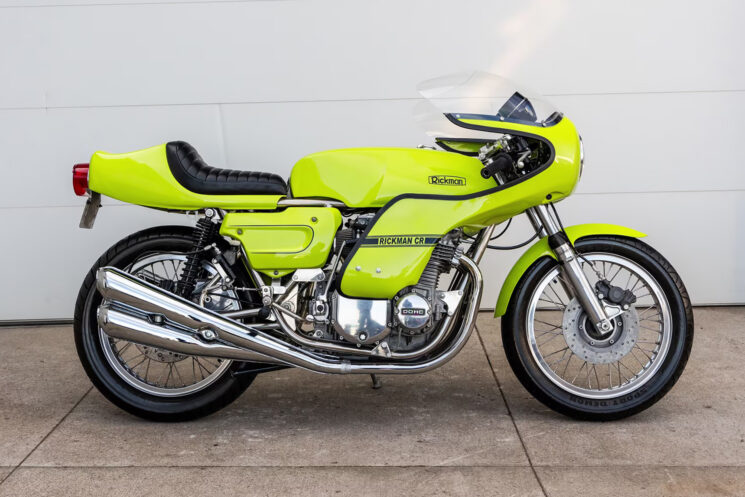
An old saying in aviation says ‘If it looks right, it flies right,’ summarizing the idea that the most ideal mechanical designs are often the most visually pleasing. While beauty is decidedly in the eye of the beholder, there’s no debating the Rickman brothers’ performance chops, and not a single item out-of-place on this exceptional 1974 Rickman Kawasaki CR900.
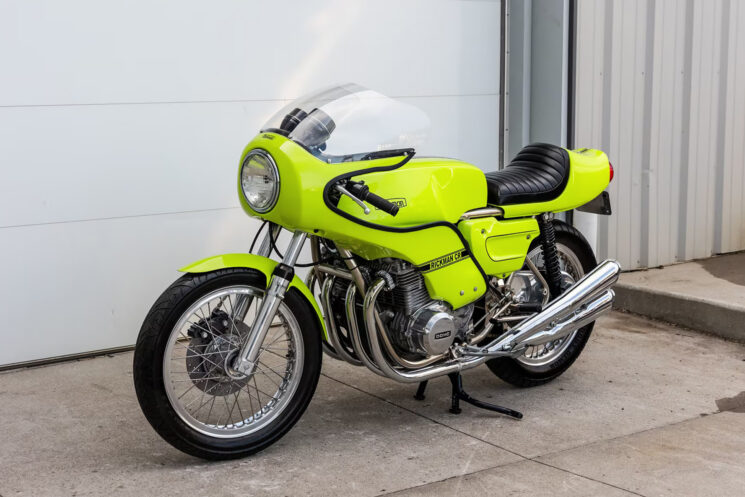
In viewing Lot F171 of Mecum’s upcoming Las Vegas 2025 sale, the impact of the retina-searing safety yellow (or green?) paintwork is undeniable. It’s a bold color that feels like it’s just come back into fashion, but it’s correct for the bike and I’ll go out on my first limb of the new year by saying I fucking love it. Boasting an impeccable restoration and all the design savviness that made Rickman famous, this CR900 makes our shortlist from Mecum’s big sale.
The masterminds behind the marque are Derek and Don Rickman, initially competitive motocross racers, who recognized the need for better chassis performance to handle the rigors of off-road competition. The Rickman brothers went into business in England sometime in the late 1950s, and it didn’t take them long to forge a reputation for exceptional craftsmanship.
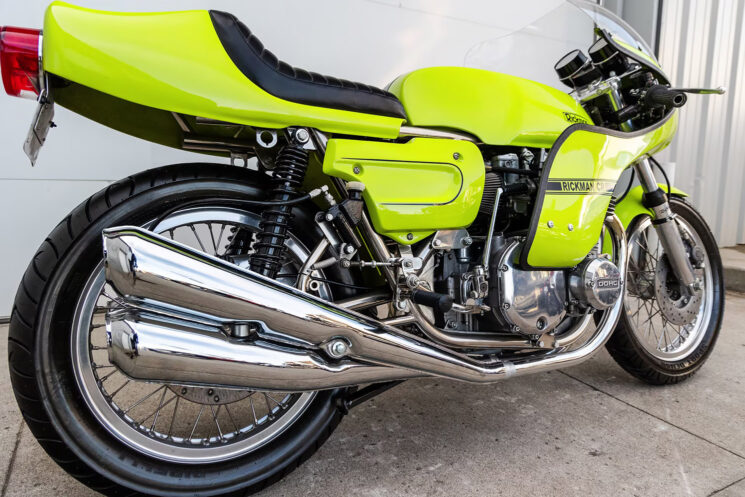
Superior lightweight design, improved geometry and Reynolds 531 tubing were the defining characteristics of a Rickman chassis. This branded manganese–molybdenum, medium-carbon steel had become a benchmark for the finest fabrication of the time, used in automotive, aeronautical and (most notably) bicycle frame applications. Rickman’s handbuilt frames, combined with off-the-shelf engines, revolutionized off-road racing by offering superior handling, rigidity and weight savings.
The success of their motocross frames led to the development of road-going and track-focused chassis, and by the 1960s, Rickman Motorcycles had become synonymous with high-performance custom builds. Their ‘Metisse’ (French for ‘mongrel’) frames gained worldwide acclaim, particularly when paired with engines from Triumph, BSA and Matchless.
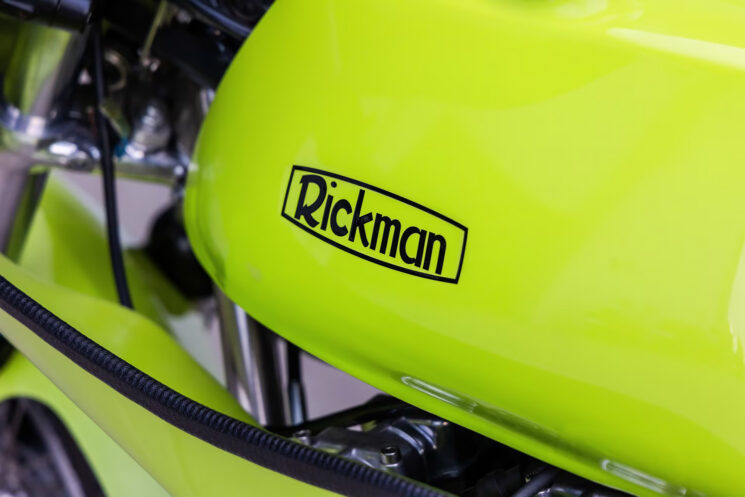
By this time, Rickman had become a legitimate manufacturer and expanded its offerings to include fully faired café racers and street bikes, often outfitted with Japanese powerplants from brands like Honda and Kawasaki during the 1970s. This transition capitalized on the handling faults of popular high-powered Japanese models, and the company continued to refine their signature handmade frames, fiberglass bodywork and innovative design elements like integral oil-in-frame systems.
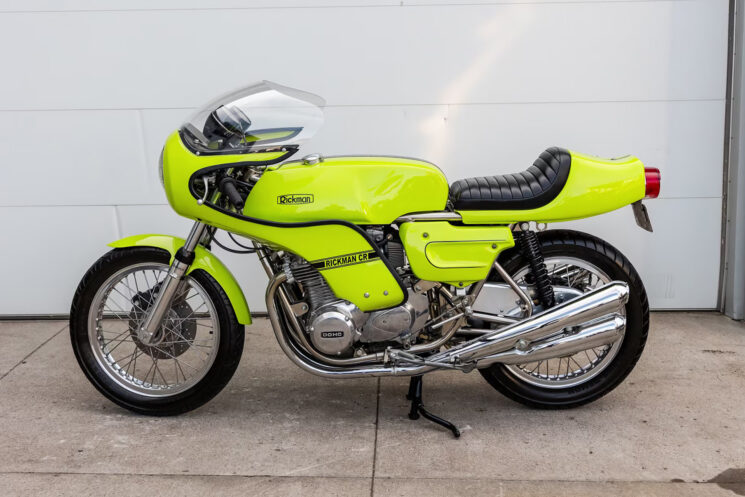
It takes no more than a passing glance at this Kawasaki Z1-based Rickman CR900 to see the design and manufacturing excellence that earned Derek and Don Rickman their place in the A.M.A. Motorcycle Hall of Fame. The hand-built Reynolds 531 frame has purposeful performance geometry, with every tab, bracket and linkage being no heavier or more complicated than need be. It’s simple and elegant, with a thick nickel-plated finish to top it all off.
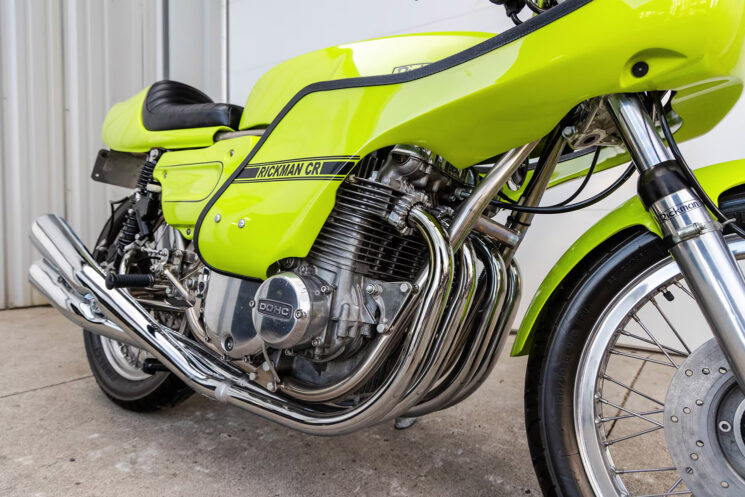
Rickman went to such lengths with the chassis to tame one of the most wiley beasts of the day, the 903 cc DOHC four-cylinder sourced from the Kawasaki Z1. Developed to topple Honda’s CB750 and establish Kawasaki as the king of motorcycles, the Z1 offered staggering performance to the tune of 82 hp at 8,500 rpm.
The Z1’s performance did indeed set the world ablaze, but like many of its contemporaries, the Z1 had a nasty habit of wiggling like a worm when you got off the throttle, and the engine could easily outrun its single front disc and rear drum. Rickman’s progressive dual-shock swingarm and Lockheed discs were a quantum leap forward, laced to Borrani aluminum wheels with CAD-plated 10-inch rotors.
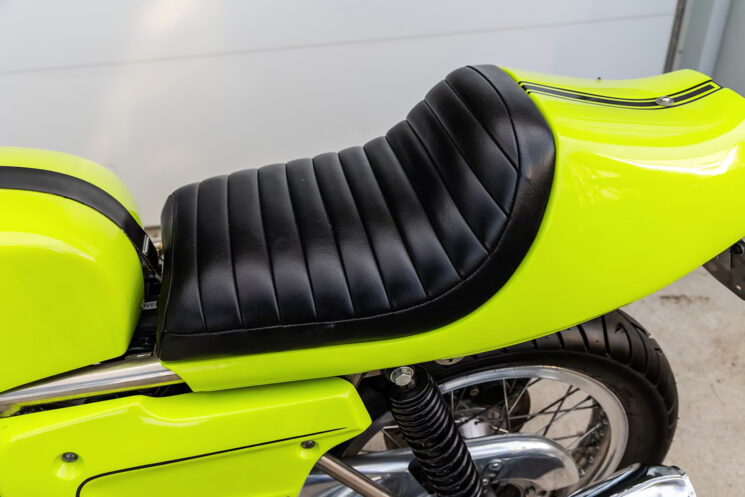
To compete with the fit and finish of the big manufacturers, Rickman outfitted the CR900 with a full suite of fiberglass bodywork, including a full CR fairing, Daytona-style tail section and Grand-Prix tank and side covers—these being exceptionally rare items to source today. Graced with a screaming safety yellow finish with black stripes, the CR900 was unlike any bike available in 1974 and Rickman produced just 146 examples that year.
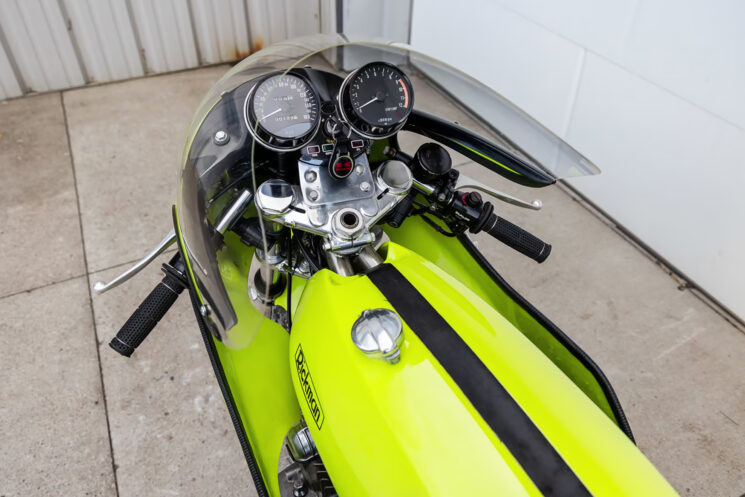
Discovered in Florida and comprehensively restored in the early 2000s, you’ll find few nicer examples of the Z1-based ’74 CR900 than Lot F171. While its replacement engine may hold the value down some, there’s simply nothing to scoff at upon a close inspection, and the bike has clearly been well cared for. Its fair value is probably between $25,000 and $30,000, but hey, it’s a no-reserve sale and could be your lucky day. Lot F171 crosses the block on Friday, January 31.
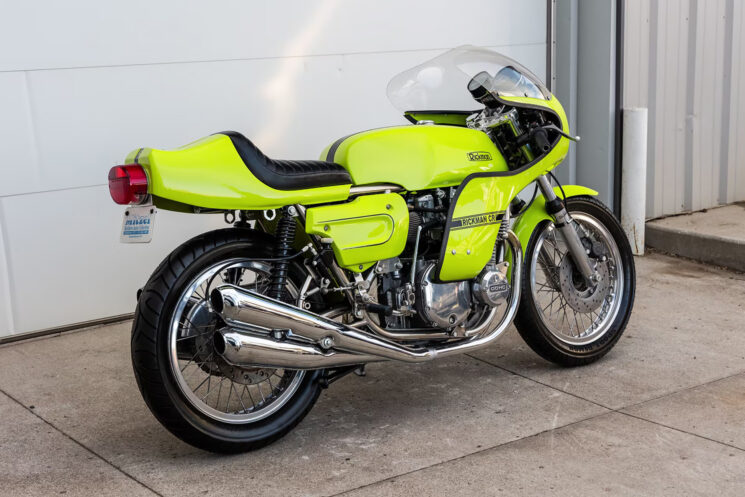
Source: Mecum
from Bike EXIF https://ift.tt/BfAx4dr
No comments:
Post a Comment